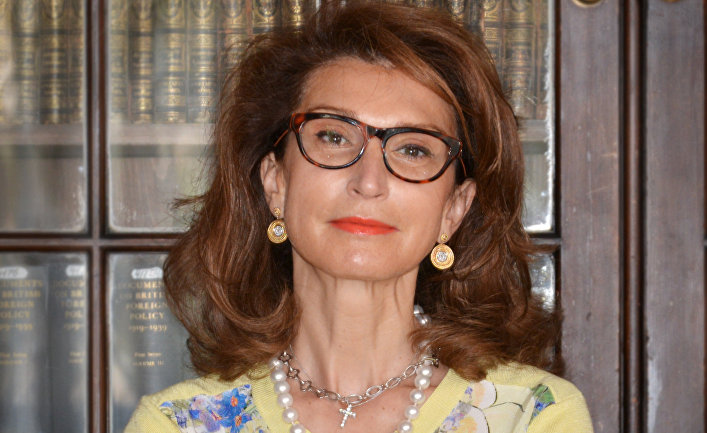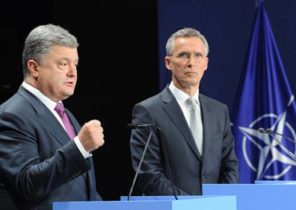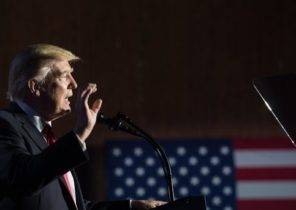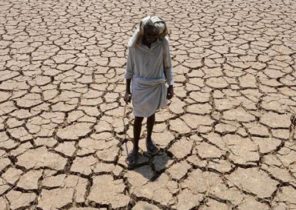
In December, all willingly-unwillingly summarize the results and provide estimates of past year. Passing this very difficult year that will be remembered for its drama and unpredictability of scenarios that are not exception. Experts and analysts of the world level, of course could not resist not to share their feelings on the passing year and look in the coming 2017.
Analyst Roger Cohen (Roger Cohen) in his column in the New York Times writes about how the postwar prosperity of liberal democracies and neoliberal economies a quarter of a century later, moves under the pressure of intolerance and authoritarianism. The post-war world order — its military alliances, trade agreements, political integration and the legal framework — seem fragile, and the nature of the American government, on which all this rests, it suddenly becomes unclear.
Western democracy was at the center of the revolution, which they are only vaguely aware of. Direct democracy social networks proved to be “smarter” than representative democracy. The impact of smartphones on human psychology remains poorly understood; their ability to create dependence are insidious and can interfere with independent thinking. Donald trump has seized power in the Republican party, like a rented tuxedo. His campaign has advanced to the agitated masses via Twitter, the traditional means was it to anything. Key political parties will have to prove their relevance.
It is clear that democratic governments are unable to meet the needs of the less privileged classes, who were pushed to the periphery of society or thrown in the vortex of the technological revolution. To convince voters that the liberal society with a free market may be fair and equitable, to give opportunities to all segments of the population, now require significant mental effort. A good example of such companies is Germany, with its successful balance between capitalism and social cohesion, respect for physical labor, support of higher and vocational education. Analyst Roger Cohen is sure that the anger that shook the West in 2016, will not pass by itself, and with regret: the liberal elite has shown remarkable arrogance and ignorance. It’s time to listen to the voters who voted for change, to be humble and to think more.
The mood of the scientist of world renown, philosopher, political economist Francis Fukuyama (Francis Fukuyama) also is not very optimistic. Looking back and trying to look in the next year, he asked a number of questions: how far will this trend towards an intolerant democracy; whether we are moving towards a time similar to that which was in the beginning of XX century, in which global politician drowned in the conflict over the closed and aggressive nationalism. The scientist believes that the result will depend on several factors, primarily, how the global elite will respond to rejection reaction they have generated. According to him, in recent years, American and European elite have committed serious political mistakes that have hurt ordinary people more than his own. The cancellation of the state control over financial markets has paved the way for the sub-Prime crisis in the United States, while the “wrong cut” of the Euro contributed to the development of the debt crisis in Greece and the Schengen system of open borders has complicated the control over the influx of refugees to Europe. Elite needs to recognize its role in creating these situations.
According to the analyst, not surprising that today there is populism, but that the rise of populism came so late. Now the elite have to decide how to organize undermined by the institutions and how best to protect those segments of society that have not learned the same benefits from globalization.
American economist, Professor at Harvard University and President Emeritus of the American University Charles Eliot (Charles W. Eliot University) Lawrence summers (Lawrence H. Summers) gives an interesting assessment. He believes that the economy of the US, EU and Japan, inflation remained below the two percent target envisaged by the Central banks. Market indicators show that this will continue in the next ten years. Continued downward trend in interest rates, which reflect pessimistic forecasts in terms of inflation and high savings level relative to investment levels. These and other figures show that the US and Europe quite a shock in the form of a recession to be trapped in deflation.
The analyst writes that taking into account information about hundreds of billions of dollars are lost every year due to application of “tax shelters”, it can be argued that global measures to combat tax evasion on income from capital in its effectiveness could at least be compared with the benefits of the controversial trade agreement. He is confident that such measures would open up more opportunities to support the middle class.
Lawrence summers is convinced that the only lasting solution to the problem of the unprecedented influx of refugees — the creation of conditions to ensure that these people can choose the best for you to stay home. On a global scale benefit from the support of source countries of forced migrants would be greater than the gain to each country from supporting only those refugees who were within its borders.
His vision gave and Analytics research Center Stratfor. They write:
Turmoil is expected in 2017, will become a political manifestation of deeper processes. In most developed countries the trend towards an aging population and decreasing productivity are imposed technological revolution and the concomitant displacement of human labor. These dynamics exacerbate the economic slowdown in the Chinese economy and the ongoing changes. At the same time the world tries to cope with falling demand from China, after decades of record growth, while China slowly but surely reforming the economy, increasing its contribution to the production chain of added value, and creates more and more components that he once imported, with an eye on expansion in the domestic market. Taken together, these factors will have a dramatic and lasting impact on the global economy and, ultimately, shape the international system in the coming decades.
The price of crude oil will rebound in 2017, partly thanks to the agreement signed between the majority of oil producing countries. The rate of recovery of shale gas production in North America will have a decisive influence on the policy of Saudi Arabia, aimed at a more ambitious reduction of oil production in the next year. And, despite the fact that North American producers will need time to react to the rebound and increase production, the Saudis know that a significant rise in oil prices is unlikely. This means that Saudi Arabia will actively influence the markets in 2017, is not to deviate from the planned course to change the structure of exports, especially in the light of the forthcoming sale of 5% stake in Saudi Aramco in 2018.
In Stratford believe that the tightening of monetary policy in the US and a strong dollar will shake the global economy in early 2017. According to scientists of the University, will be hardest hit developing countries, whose risk debt is denominated in U.S. dollars. In this list they included Venezuela, Turkey, South Africa, Nigeria, Egypt, Chile, Brazil, Colombia and Indonesia. They believe that the pressure on the yuan and steadily dwindling currency reserves will force China to strengthen control over the outflow of capital. Thus, larger trade agreements will be replaced with smaller, less ambitious deals between countries and political blocs because they believe the Transatlantic trade and investment partnership and the TRANS-Pacific partnership was “collected” on the ruins of a failed Doha round in the WTO.
Western analysts estimate serious, albeit arguable. It seems that, without a doubt, 2017 will be a turning point in world politics. It is understood by all. The new active processes that cause tectonic changes literally promise a complete revolution in international relations that needs to come out to the forefront of a new generation of political leaders in Western countries.







